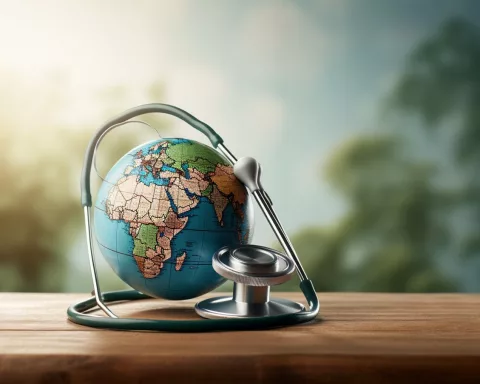Drug-resistant tuberculosis (DR-TB) is a growing global health threat, with high mortality rates, exorbitant treatment costs, and increased transmission risks. In 2021, there were approximately 450,000 DR-TB cases reported worldwide, resulting in 191,000 deaths. South Africa has one of the highest DR-TB burdens, but only half of the patients initiate treatment.
The Urgent Need for Expedited Diagnostics
Researchers, such as Dr. Brigitta Derendinger from Stellenbosch University’s Faculty of Medicine and Health Sciences, emphasize the urgent need for innovative and quicker diagnostic methods for DR-TB to curb transmission, improve treatment, and ultimately save lives. Dr. Derendinger’s study explored the obstacles faced by the World Health Organization’s (WHO) END-TB strategy, which aims to eradicate tuberculosis globally by 2035.
Limitations of Current Diagnostic Tests
One area of focus in Dr. Derendinger’s research is the resistance to the breakthrough TB drug bedaquiline, the first of its kind in nearly 40 years. However, current diagnostic tests for TB, such as Xpert MTB and RIF Ultra, still require a second sputum sample to confirm resistance to rifampicin, a common TB treatment, and to diagnose resistance to second-line drugs. Despite the roll-out of Xpert, Ultra, and MTBDRplus in South Africa, the time from initial DR-TB diagnosis to the start of treatment remains lengthy.
Innovative Approaches to Expedite Diagnosis
To address these issues, Dr. Derendinger devised an innovative approach of extracting DNA from used Xpert cartridges (cartridge extract, CE) that would typically be discarded. By using this single cartridge extract, she concurrently conducted both first-line (MTBDRplus) and second-line (MTBDRsl) TB drug tests, accelerating DR-TB diagnosis, and eliminating the need for collecting a second specimen. Dr. Derendinger also highlighted the importance of adjusting a parameter used in MTBDRplus and MTBDRsl tests to improve the diagnosis of DR-TB in more patients and facilitate their timely placement on effective treatment regimens.
Concerns and the Need for Widespread Testing
Dr. Derendinger emphasized the rapid scale-up of bedaquiline but expressed concern about the lack of widespread TB drug testing. The WHO recommends testing for all bedaquiline recipients to monitor their treatment, but South Africa faces inconsistencies in implementing this practice due to limited central laboratory capacity, contributing to diagnostic delays.
The Importance of Molecular DR-TB Tests
Dr. Derendinger’s research findings have made a significant impact on the global stage by influencing WHO training materials and contributing to laboratory performance and quality assessments worldwide. Optimizing established molecular DR-TB tests and developing new ones to monitor resistance to innovative drugs like bedaquiline is crucial for reducing delayed diagnoses and ongoing transmission of drug-resistant tuberculosis.










